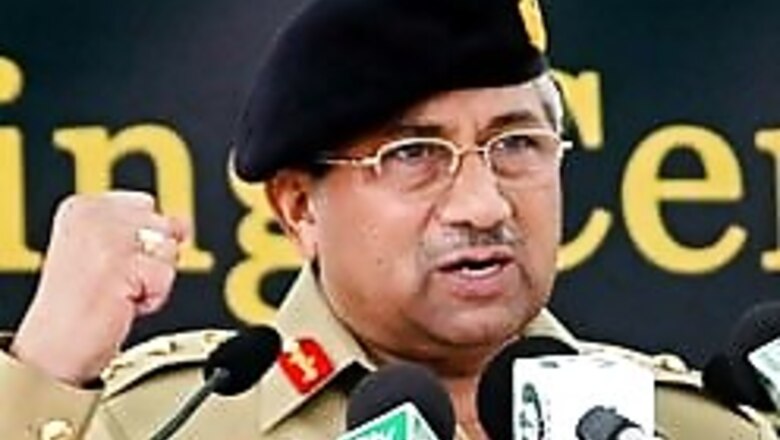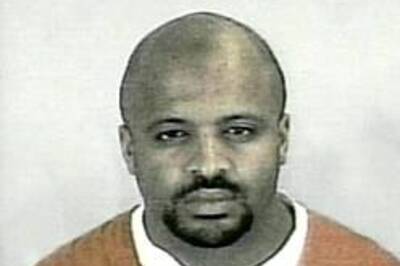
views
United Nations: Making the Line of Control (LOC) irrelevant is one of the ideas towards "an acceptable solution" to the Kashmir issue Pakistan President General Pervez Musharraf seems to have in mind.
Mainly the issue in Kashmir, he told a press conference on Wednesday on the sidelines of the 61st UN General Assembly session, is that while India's concern is that redrawing of borders is not possible, Pakistan's view was that the LOC cannot be made permanent.
"Therefore the deduction from both sides is that LOC should be made irrelevant," he said. "So these are good ideas which need to be substantiated or crystallised in greater detail. And I think with right amount of will we can find a solution."
However, Musharraf would not elaborate further saying there were extremists on both sides and as such "we need to tread difficult ground in a very steady manner to reach final conclusions."
There were, he said, three factors that made him suggest during his address to the UN General Assembly Tuesday that "an acceptable solution" to the Kashmir issue was within reach.
Firstly, there is desire of the Indian and Pakistani people to reach peace. Secondly, the international environment happens to be quite conducive towards facilitating a peaceful resolution of disputes.
Thirdly, the leadership on both sides has an increasing desire to reach a peace agreement, Musharraf said suggesting that within this framework there were many proposals, many of them given by him. But he chose to dilate about only the one relating to LOC.
His meeting in Havana with Prime Minister Manmohan Singh was very positive, Musharraf said. As their joint statement noted, the two sides have been discussing the Kashmir dispute and needed to "narrow down our divergences and strengthen our convergences," he said, urging the media to support both him and Singh.
There were extremists on both sides of the border. Those in Pakistan were unhappy with whatever he was doing and those in India with what Singh was doing, he said, "So I would urge you to be positive and help the prime minister out and help me out."
On the Kashmir issue, "there is a desire to move forward and we will keep moving forward," he said, describing the joint statement as a very good movement forward.
"We have shown a resolve to move forward with all the elements of the peace process" including a resolution of the Siachen and Sir Creek issues, he said.
Asked about Indian intelligence's reported concerns about the proposed India-Pakistan joint mechanism to fight terrorism, Musharraf said, "It's not a question of only Pakistan intelligence coming on board. We would like even the Indian intelligence to come on board with us. It's a mutual gain."
Pakistan, he said, had certain apprehensions about the Indian intelligence and what is happening in Pakistan and in Balochistan province. Probably Indian intelligence has its own apprehensions.
The mechanism has not been set. The two sides have just said that there will be an institutional mechanism to address these issues. So more should not be read between the lines, Musharraf said.
"We will create that mechanism for addressing issues of mutual concern. And I am sure, we'll do a good job of it," he said.
Asked if Pakistan would support India's nominee Shashi Tharoor for the post of UN secretary general, Musharraf said Islamabad had not made up its mind yet, adding that "I would not be able to play my cards" if he showed his hand.
Asked if an evil ideology or non-resolution of the Kashmir issue was behind the Mumbai train bombings, Musharraf said, "I can't say. Whatever has happened is most detestable. I condemn it in the strongest terms. But I really don't know who is behind it."
Pakistan, he said, had proposed assistance. It had proposed that if Pakistan was accused of something, it would like to join the investigation and coordinate efforts. "But that was summarily rejected. So we don't really know what has happened or who has done it."
On denial of an India type nuclear deal by Washington, Musharraf said there should be no discrimination as Pakistan is a nuclear state. Pakistan had a tremendous energy demand because of its economic and industrial growth.
"So I would like to say that Pakistan urges everyone to treat us equally with all other nuclear states. In any case, nuclear state or not, Pakistan needed nuclear energy with all the IAEA (International Atomic Energy Agency) safeguards. So When it was prepared to accept all safeguards, why should there be a bias against Pakistan," he asked.
Asked to comment on the US President George W. Bush's remark to CNN that given actionable intelligence about the whereabouts of bin Laden even if he was on Pakistani territory, he will give orders to kill or capture him, Musharraf said, " We would not like to allow that at all. We will do it ourselves."
"Whenever we have located anybody from the Al-Qaeda or the Taliban, we have struck with good force very successfully. And we'll do it again on our side of the frontier," he said.
















Comments
0 comment